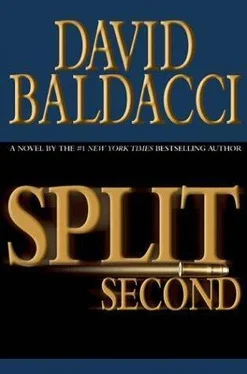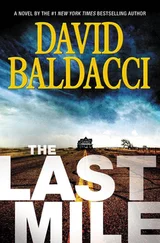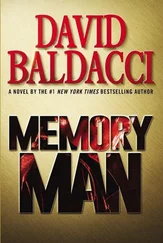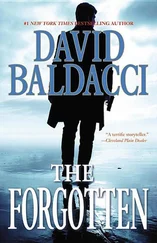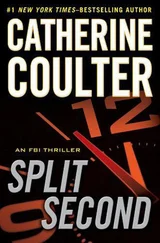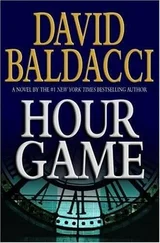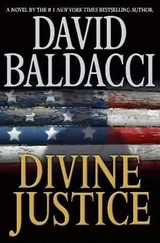They met at a small café downtown where she got the records from him. She gave the young man a hug that she let linger just long enough for her to be quite certain that he would continue to do her bidding. When she joined the Service, she had not handed in her membership in the female ranks. At one level it was just another tool. In fact, used judiciously, it was far more powerful even than her.357.
As she was getting back into her truck, a voice called out. She turned to see an agent she had leapfrogged over in climbing the career ladder. The look on his face was clear. He was here to gloat.
"Who would have thought?" he began innocently. "Your star was shooting straight up. I still can't understand how you let it happen, Mick. I mean, leaving the guy alone in a room you hadn't really swept. What the hell were you thinking?"
"I guess I wasn't thinking, Steve."
He slapped her on the arm, a little harder than he needed to. "Hey, don't worry, they're not going to let their superstar woman fall. You'll get reassigned, maybe guarding Lady Bird down in Texas. Or maybe the Fords. That way you get six months in Palm Springs and six in Vail and a sweet per diem. Of course, if it were one of us poor slobs, they'd cut our heads off and forget about us. But who said life was fair?"
"You might be surprised. I might not be with the Service when this is all over."
He smiled broadly. "Well, maybe life is fair after all. Hey, you take care." He turned to leave.
"Oh, Steve?" He turned back. "I trust you got the memo that they're doing a computer sweep on everybody's laptop next week. You might want to get that porno stuff off-you know, from that site you keep checking from the office? That might blow your clearances. And who knows, maybe even your wife might find out. And while we're on the subject, are big boobs and a tight ass really worth the risk? I mean isn't that, like, so sixteen-year-old?"
Steve's smile disappeared; he extended his middle finger to her and stalked off.
Michelle couldn't stop smiling all the way back to the hotel.
Michelle spread out the documents on her bed, going over them meticulously and making notes along the way. It became apparent that King had had a spotless record and a long list of commendations in his career at the Service-at least until that fateful day when his attention wandered and Clyde Ritter paid the ultimate price.
During his stint working counterfeiting early on in his career, King had even been wounded when a bust went down badly. He killed two men after taking a round in his shoulder. And years later he killed Ritter's assassin, albeit a few seconds too late. That made a total of three men he'd gunned down in the line of duty. Michelle had fired thousands of rounds in training, but even in her brief stint as a police officer in Tennessee she'd never shot anyone for real. She often wondered what that would feel like, whether it would change you, making you either too reckless or too careful to do your job properly.
Clyde Ritter's assassin was a professor at Atticus College. Professor Arnold Ramsey was not a prior known threat and had no ties to any radical political organization, although it was later learned he was an outspoken critic of Ritter. He left behind a wife and daughter. Some legacy to leave behind for the kid, Michelle thought. What was she supposed to do when talking about her family ? Hi, my dad was a political assassin, like John Wilkes Booth and Lee HarveyOswald. He was shot to death by the Secret Service. So what does your dad do? No one else had been arrested in connection with the assassination. The official conclusion was that Ramsey acted alone.
Finished for now with the paper trail, she picked up the video that was part of the official record. She popped it into the VCR underneath the TV and turned it on. She sat back and watched as the scene from the hotel meet-and-greet during the Ritter campaign materialized on the TV. This video had been taken by a local television crew filming the Ritter event. It had put the final nail in King's coffin. Despite taking great pains to make sure such a mistake was never repeated, the Service had chosen not to show this video to its recruits. Perhaps out of embarrassment, Michelle thought.
She stiffened when she saw the confident-looking Clyde Ritter and his entourage enter the packed room. She knew little about Ritter other than that he had started life as a TV minister and made a considerable fortune. Thousands of people from across the country had sent him money, in amounts large and small. There'd been claims that numerous wealthy older women, mostly widows, had given him their life savings in exchange for his promise they'd go to heaven. Yet there was no hard evidence of that, and the furor died down. After leaving the quasi-religious life he ran for and was elected to Congress from a southern state, though she didn't know which one. He had a dubious voting record on racial and other issues of civil liberties, and his brand of religion was over the top. Yet he was beloved in his state, and there were enough voters in the country dissatisfied with the direction of the major party platforms that Ritter had run for president, as an independent. That grand ambition had ended with a bullet in his heart.
Next to Ritter was his campaign manager. Michelle had looked him up in the file too. He was Sidney Morse. The son of a prominent California attorney and an heiress mother, Sidney Morse had been, strangely enough, a playwright and stage director before turning his considerable artistic talents to the political arena. He earneda national reputation managing large political campaigns, turning them into media-driven extravaganzas with emphasis on sound bites and perception over any kind of substance, and his win rate was astonishingly high. That probably said more for the gullibility of the modern voter than the high standards of the modern candidate, Michelle thought.
Morse became a troubleshooter for hire, crossing the political aisle when the money and situation were right. He joined the cause when Ritter's campaign really started to take off and the candidate needed a more seasoned helmsman. Morse had the reputation for being brilliant, crafty and, when called for, ruthless. All sides agreed that he helped Ritter run a damn near perfect campaign. And from all accounts he enjoyed the hell out of rocking the establishment with his third-party juggernaut. However, Morse had been a political outcast after Ritter's assassination, and his life had been in a downward spiral. Over a year ago Morse, his mind gone, had been committed to a state mental institution where he'd probably live out the rest of his life.
Michelle stiffened again when she saw Sean King directly behind the candidate. She mentally counted off the agents in the room. There weren't that many, she realized. She'd had three times that number on her Bruno detail. King was the only agent anywhere near Ritter. She wondered who'd come up with that lousy plan.
As an avid student of her agency's history, Michelle knew that the Secret Service's mission had evolved over time. It had taken the tragic deaths of three presidents, Lincoln, Garfield and McKinley, for Congress to act substantively on the issue of presidential security. Teddy Roosevelt received the first real dose of Secret Service protection after McKinley was gunned down, although things were far less sophisticated back then. As late as the 1940s Harry Truman, Franklin Roosevelt's newly elected vice president, didn't even have a Secret Service agent assigned to him until one of Truman's aides argued convincingly that a person who was a single heartbeat awayfrom becoming the most powerful man in the world was damn well entitled to at least one professional lawman with a gun watching over him.
Читать дальше
